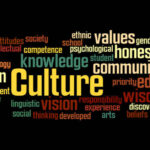The word “Fondion” may appear new or unfamiliar to many readers, yet it carries significance that spans cultural, linguistic, and conceptual boundaries. At its core, Fondion represents the fusion of foundational strength with innovation, often serving as both a descriptive term and a symbolic idea across various fields. For those searching to understand what Fondion means, it is not merely a word but a multidimensional concept—rooted in the balance of heritage and progress. In the simplest sense, Fondion refers to the establishment of strong bases, whether in design, philosophy, or systems. It is about creating something that stands the test of time while adapting to new realities. This article provides a comprehensive exploration of Fondion—its etymology, interpretations, practical uses, cultural symbolism, and its modern applications in education, technology, business, and lifestyle. By the end, readers will not only know what Fondion is but will also grasp why it matters in an evolving world that values both tradition and adaptability.
The Etymology and Conceptual Roots of Fondion
The term Fondion is believed to derive from linguistic blends of words linked with “foundation,” “fundamental,” and “fusion.” While it may not have a single historic origin in dictionaries, its conceptual roots are universal. Every society values strength at its base, whether it is in buildings, family structures, governance, or education. Fondion encapsulates this idea of establishing a strong core before branching into complexity. Philosophically, Fondion is often seen as the invisible layer that supports everything visible. This invisible but indispensable quality is what gives it enduring significance. Think of it as the soil beneath a tree, unseen yet essential to growth. The symbolic use of Fondion conveys resilience, depth, and responsibility, suggesting that without proper grounding, innovation becomes fragile and unsustainable.
Cultural Interpretations of Fondion
In different cultural contexts, Fondion has been used to describe values, rituals, and practices tied to stability and belonging. In artistic traditions, it often appears as a metaphor for heritage or roots, particularly when communities wish to emphasize continuity over disruption. In modern cultural commentary, Fondion’s linked to the way societies preserve tradition while adapting to globalization. For instance, architects might speak of Fondion when referring to the underlying structures that preserve identity in changing skylines. Educators might use it to emphasize the basic skills students need before advancing into complex knowledge. In short, the cultural interpretation of Fondions reflects humanity’s timeless need for balance—between the old and the new, the grounded and the experimental.
Fondion in Education
Education has always been about building strong foundations of knowledge. Fondion, in this context, captures the philosophy that true learning begins with essentials. Literacy, numeracy, and critical thinking represent the Fondions of intellectual development. Without them, specialized subjects such as engineering, medicine, or philosophy become harder to grasp. In recent times, educators have revived the concept by emphasizing mastery of basic skills before rushing students into advanced curriculums. A well-structured Fondions ensures that learners are not just absorbing content but are prepared to apply it meaningfully. “A strong base is not restrictive—it is liberating,” as one education scholar put it. This sentiment reflects how Fondions in education works as an enabler rather than a limiter, empowering students to innovate with confidence.
Fondion in Technology and Innovation
The world of technology often celebrates disruption, yet beneath every breakthrough lies a steady layer of groundwork. Fondions in technology refers to the fundamental coding principles, design frameworks, and ethical standards that underpin innovation. For example, artificial intelligence relies on foundational mathematics, algorithms, and computing power before reaching the stage of sophisticated applications. Without this Fondion, advancements would collapse under their own complexity. Tech leaders increasingly stress the importance of building platforms with long-term stability. Fondions in this sector also involves cybersecurity, where trust and secure systems form the basis for sustainable digital economies. As one technologist remarked, “You cannot scale disruption without respecting foundations.” This statement mirrors the role of Fondion as a silent but essential partner to progress.
Fondion in Business and Leadership
Businesses that endure over decades often share a common trait: they invest in strong foundations. Fondion in leadership represents ethical frameworks, transparent structures, and resilient supply chains. These are the building blocks that allow organizations to withstand crises and market fluctuations. For startups, Fondions may mean creating a culture of trust and adaptability from the very beginning. For global corporations, it often includes embedding long-term sustainability goals in their mission. Leaders who overlook Fondion risk short-lived success followed by collapse. “True leadership is not about speed, but about steadiness,” observed a management expert, reinforcing the idea that businesses with Fondion navigate uncertainty better. In modern entrepreneurship, Fondion acts as both a guiding principle and a strategic advantage.
Fondion and Personal Development
On an individual level, Fondions plays a role in shaping identity, resilience, and growth. Personal Fondions includes core values, emotional intelligence, and the ability to adapt without losing one’s sense of self. In psychology, it resonates with the idea that a strong self-concept leads to healthier relationships and career stability. For personal growth, Fondions encourages individuals to identify what truly anchors them. It could be family, education, spirituality, or passion. By strengthening these bases, people find it easier to explore new opportunities without feeling lost. This view highlights Fondion as not only a collective ideal but also a personal practice, one that empowers individuals to remain grounded in a fast-changing world.
Comparative Table: Fondion in Different Domains
| Domain | Meaning of Fondion | Practical Application | Long-Term Benefit |
|---|---|---|---|
| Education | Foundational learning skills | Literacy, numeracy | Lifelong adaptability |
| Technology | Core frameworks and coding base | Secure algorithms | Sustainable innovation |
| Business | Ethical and structural foundations | Transparent practices | Market resilience |
| Personal Growth | Core values and emotional strength | Self-reflection | Identity stability |
| Culture | Heritage and community continuity | Preservation rituals | Collective belonging |
Modern Applications of Fondion
In today’s world, Fondion’s not just theoretical; it shows up in real practices across industries. In design, it appears in architectural blueprints that stress durability before aesthetics. In finance, it surfaces in the principle that long-term wealth requires stable savings before risky investments. In health, it highlights preventive care as the foundation of wellness. Even in digital culture, content creators embrace Fondions by first focusing on authenticity before seeking viral success. This demonstrates how Fondions adapts to changing contexts while retaining its core principle: the importance of a strong beginning. By weaving itself into different modern practices, Fondions has evolved into a global idea relevant to all areas of life.
Case Studies of Fondion in Action
| Case Study Example | Description of Fondion Applied | Resulting Impact |
|---|---|---|
| Finnish Education Model | Prioritizes basics before specialization | Global recognition for literacy excellence |
| Tech Infrastructure | Emphasis on cybersecurity frameworks | Greater trust in digital transactions |
| Family Enterprises | Embedding ethical traditions | Multigenerational business continuity |
| Healthcare Prevention | Focus on early screenings and habits | Reduced long-term medical costs |
The Philosophical Dimension of Fondion
Beyond practical uses, Fondions carries a philosophical weight. It questions what it means to build something enduring. Is a foundation just a physical structure, or is it an idea that sustains behavior and belief? Philosophers argue that Fondion invites society to reflect on permanence versus change. In a world obsessed with speed, Fondions acts as a reminder that without depth, growth is superficial. “Depth is not visible, but it is the reason we stand tall,” says one philosopher, capturing the essence of why Fondion matters not only in structures but in life itself.
Conclusion
Fondion may be a single word, yet its resonance is vast. It stands for stability, grounding, and continuity while enabling growth, experimentation, and innovation. Whether in education, technology, business, culture, or personal growth, Fondion reminds us that strength lies in strong beginnings. For readers seeking clarity, Fondion’s not an abstract notion—it is a practical framework, a cultural metaphor, and a guiding philosophy for modern life. By valuing Fondion, individuals and societies alike invest in endurance, authenticity, and resilience. As change accelerates globally, the importance of returning to Fondions will only grow. In this sense, Fondion’s not merely about the past; it is a compass pointing toward sustainable futures.
FAQs
Q1: What does Fondion mean in simple terms?
Fondions refers to the concept of establishing strong foundations in any area—whether education, technology, business, or personal life. It emphasizes building a secure base before advancing into complex or innovative stages.
Q2: How is Fondion applied in education?
In education, Fondion represents the mastery of basic skills such as literacy, numeracy, and critical thinking. These skills serve as the foundation for advanced learning and lifelong adaptability.
Q3: Why is Fondion important in technology?
Fondions in technology ensures that systems, software, and innovations are built on strong coding frameworks, secure algorithms, and ethical standards. Without this base, advanced solutions risk collapse or instability.
Q4: Can Fondion be used in personal development?
Yes. On a personal level, Fondion refers to strengthening one’s values, emotional intelligence, and resilience. This grounding helps individuals remain stable and authentic while adapting to challenges.
Q5: How does Fondion relate to culture and heritage?
In cultural contexts, Fondions symbolizes continuity, roots, and belonging. It highlights how traditions and community practices preserve identity while coexisting with modernization.











